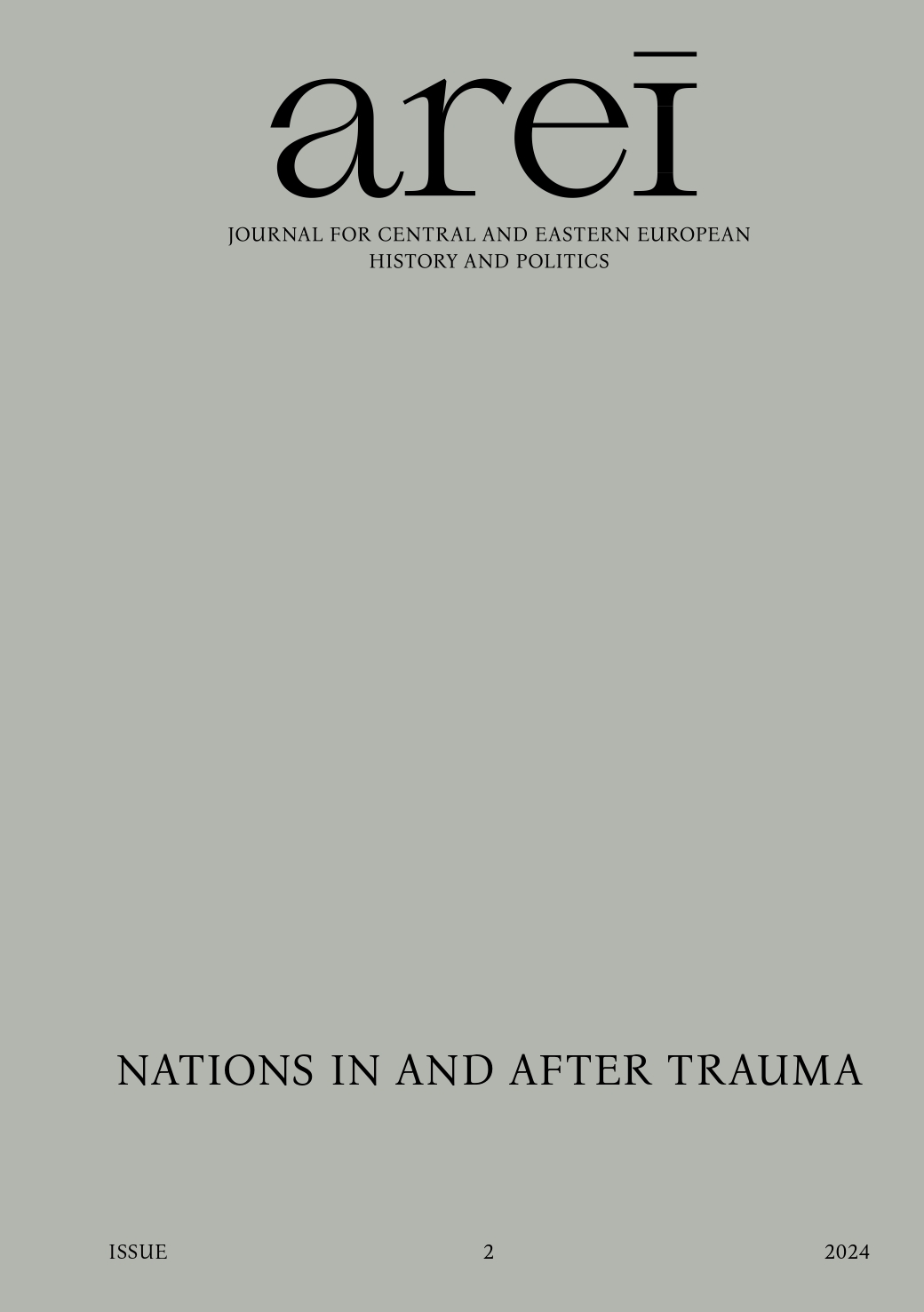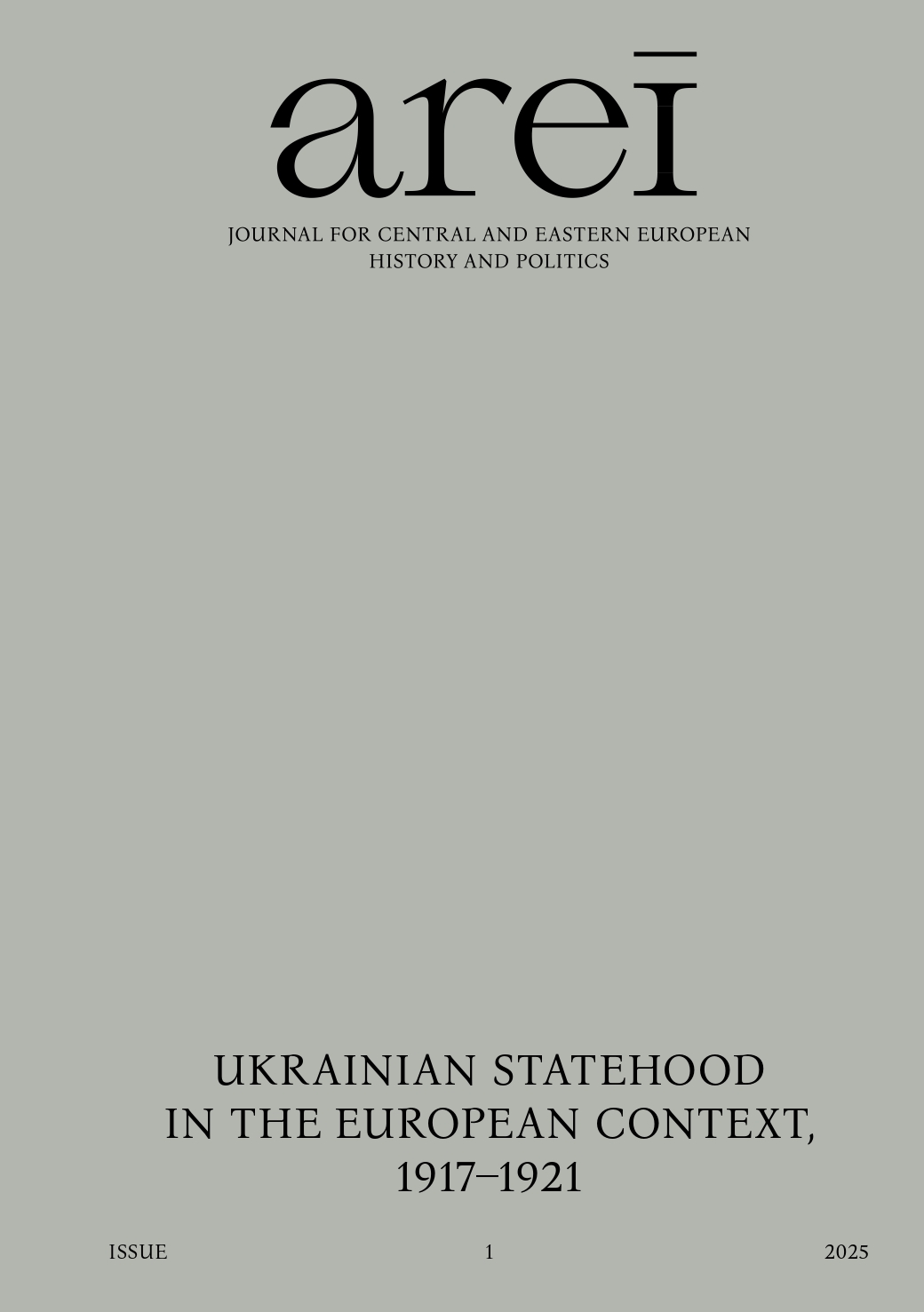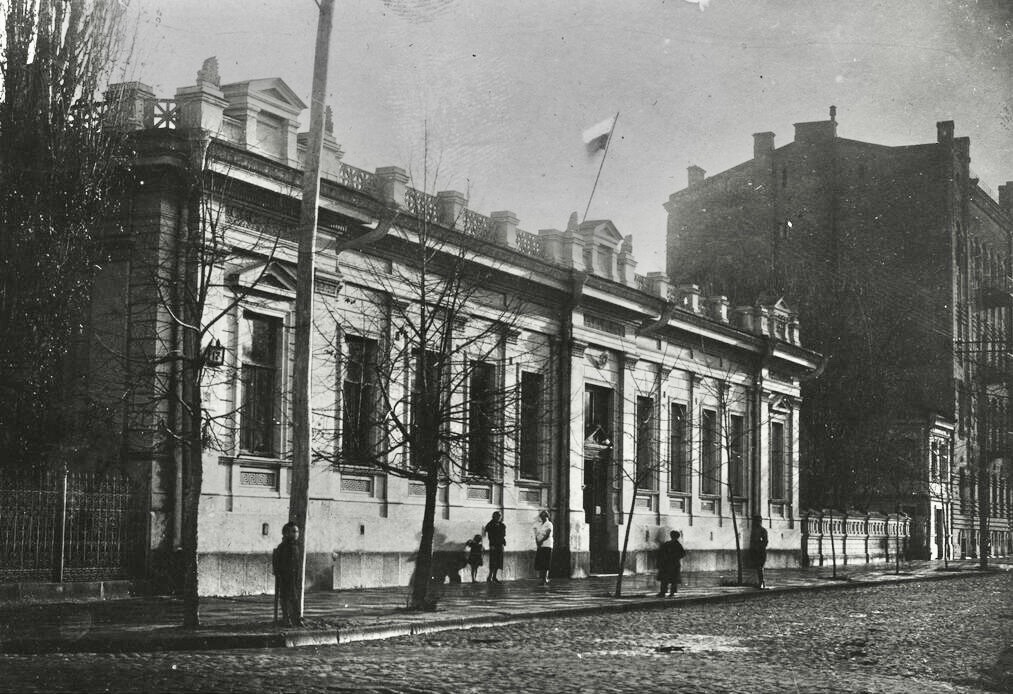The latest issue of AREI: Journal for Central and Eastern European History and Politics delves into the intricate interplay of historical memory, trauma, and the reshaping of national identities in the aftermath of war and societal upheaval. This collection of interviews, articles, and reviews provides a multidisciplinary perspective on how communities grapple with their past, navigate present challenges, and envision their futures.
Our lead interview features Nikolay Koposov, whose reflections on Putin’s actions and ideology underscore the global repercussions of memory politics and authoritarian governance, framing the issue within a broader context of historical and political transformation.
The articles section offers a diverse array of insights into how memory, identity, and culture evolve in the shadow of historical trauma. Darius Staliūnas and Rimantas Miknys explore the intersection of Polish national projects and their influence on Lithuania and Belarus in the early twentieth century, revealing how national movements contended with external pressures and internal aspirations. Nadiya Kiss, Liudmyla Pidkuimukha, and Yuliia Kolisnyk analyse the deconstruction of Russian imperialist narratives through Ukrainian pop culture amidst the ongoing war, while Lóránt Bódi and Hanna Mezei illuminate the fading and revival of Jewish memory in Hungary’s synagogues. Dóra Pataricza and Mercédesz Czimbalmos examine Jewish–non-Jewish relations in post-war Szeged, focusing on the complexities of survival and rebuilding. Iryna Kashtalian, Yuri Radchenko, and Blanka Soukupová provide deeply researched accounts of Jewish experiences in Belarus, Ukraine, and the Czech lands, addressing Holocaust memory, survival strategies, and community dynamics in the years following the Second World War.
In our testimonies section, an exclusive interview with Zenon Pozniak offers a poignant exploration of resistance, identity, and the enduring challenges posed by Russian imperialism.
Finally, the reviews provide critical engagement with recent scholarship. Yana Prymachenko reviews Sergei Zhuk’s The KGB, Russian Academic Imperialism, Ukraine, and Western Academia, 1946–2024, dissecting the mechanisms of Russian academic influence. Hennadii Yefimenko critically assesses recent studies on the numbers of Holodomor victims, contributing to ongoing debates on the historiography of genocidal policies.
This issue underscores the enduring power of history to shape identities, inform policies, and influence collective futures. Through its diverse contributions, it invites readers to reflect on the intersections of trauma, memory, and resilience in Central and Eastern Europe and beyond.







